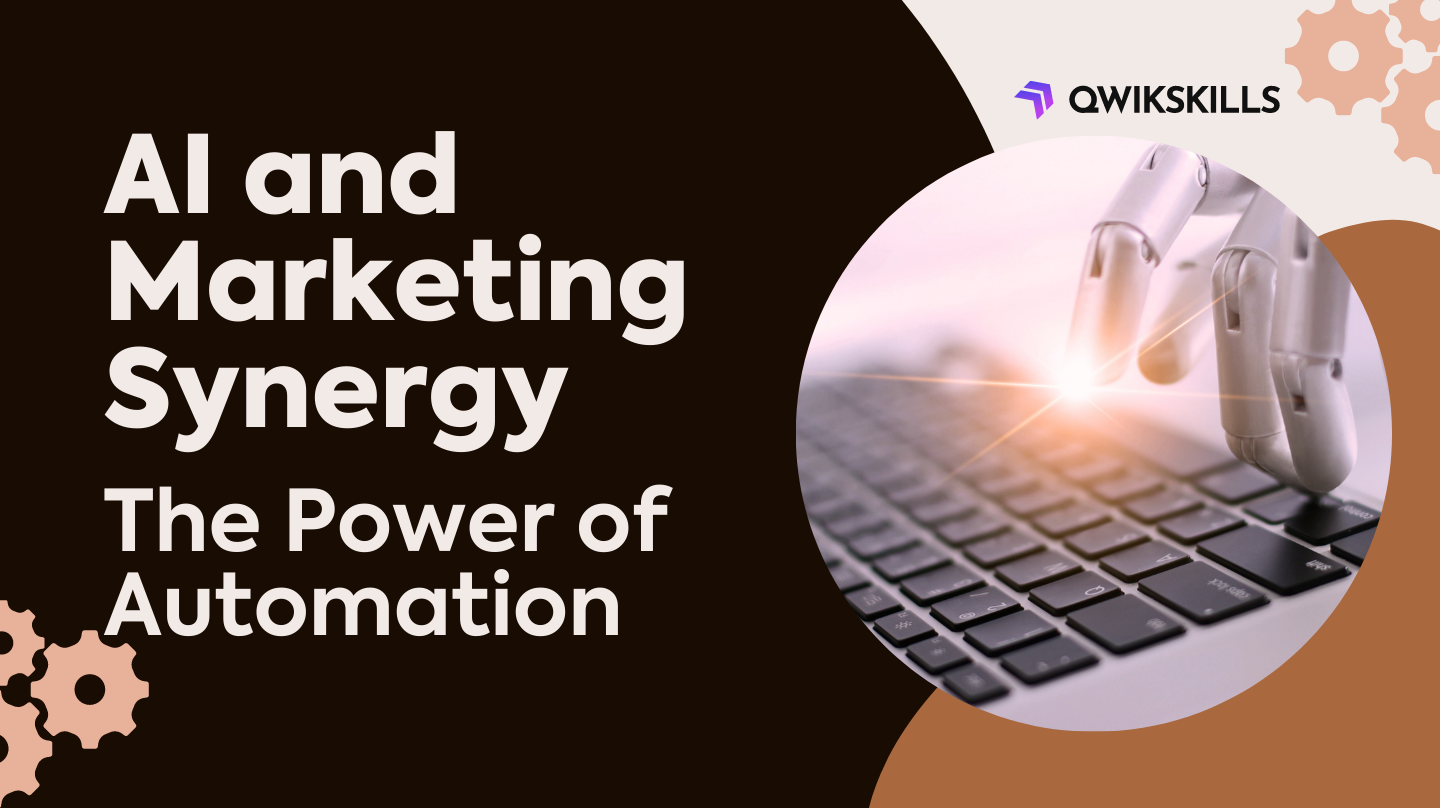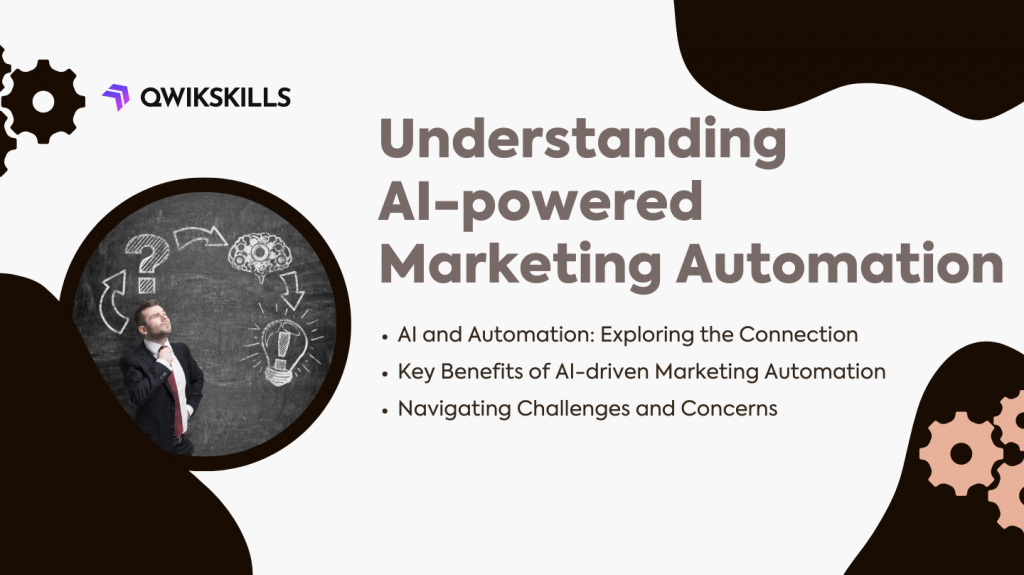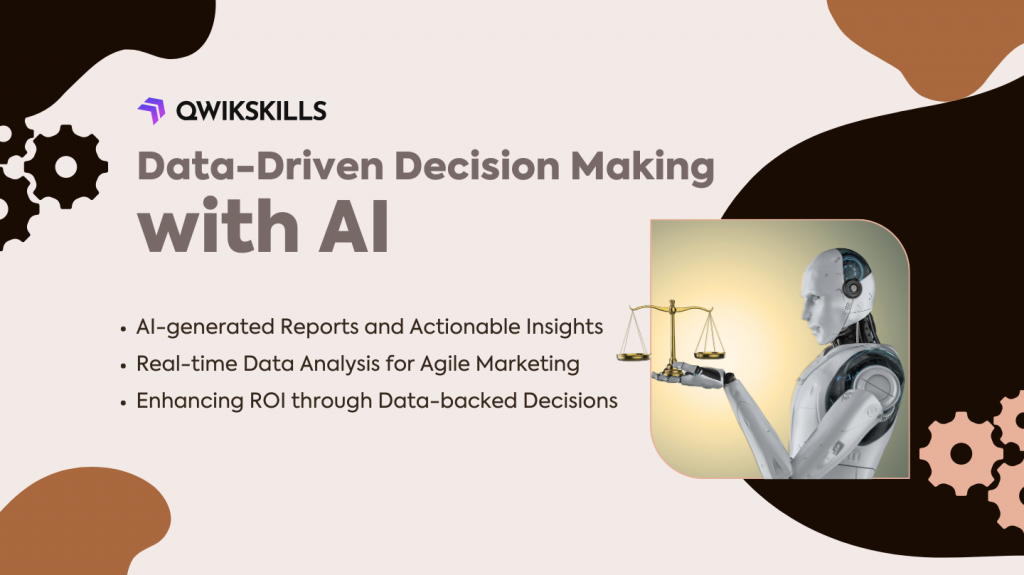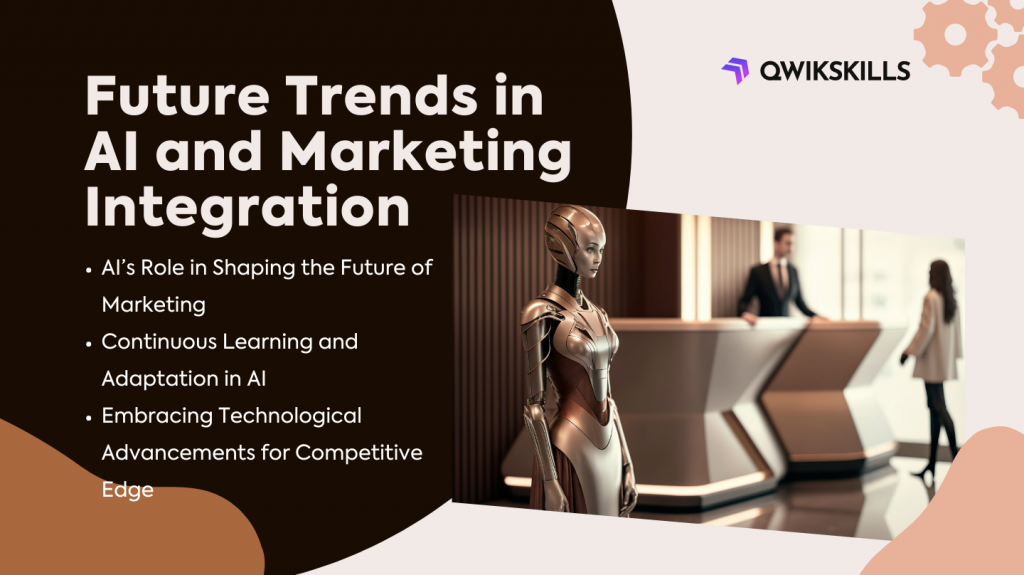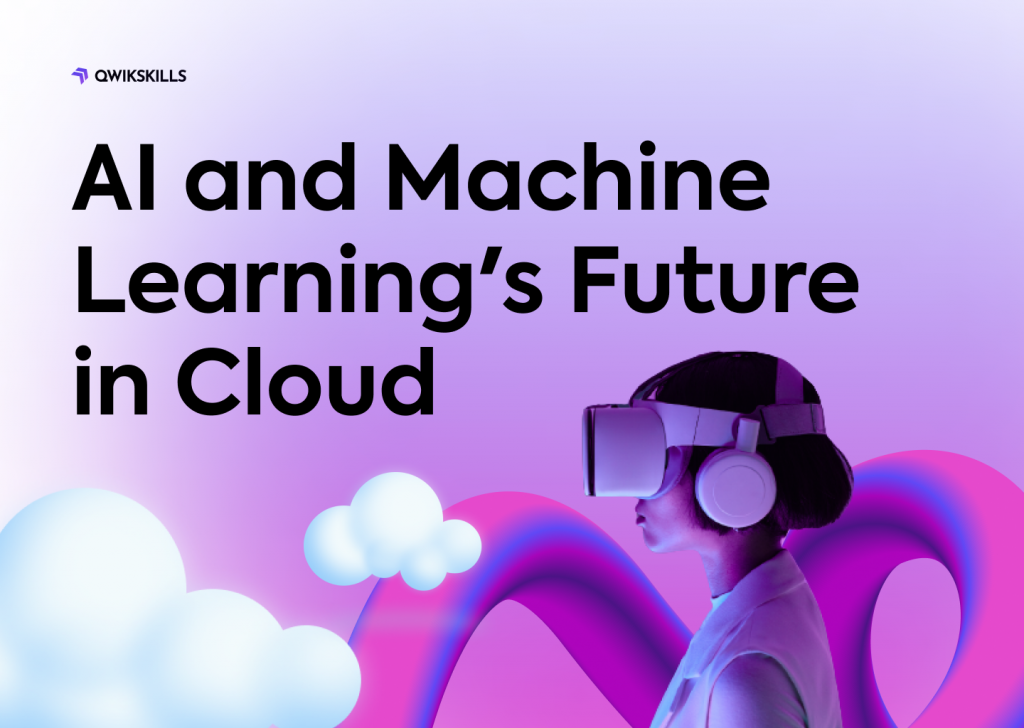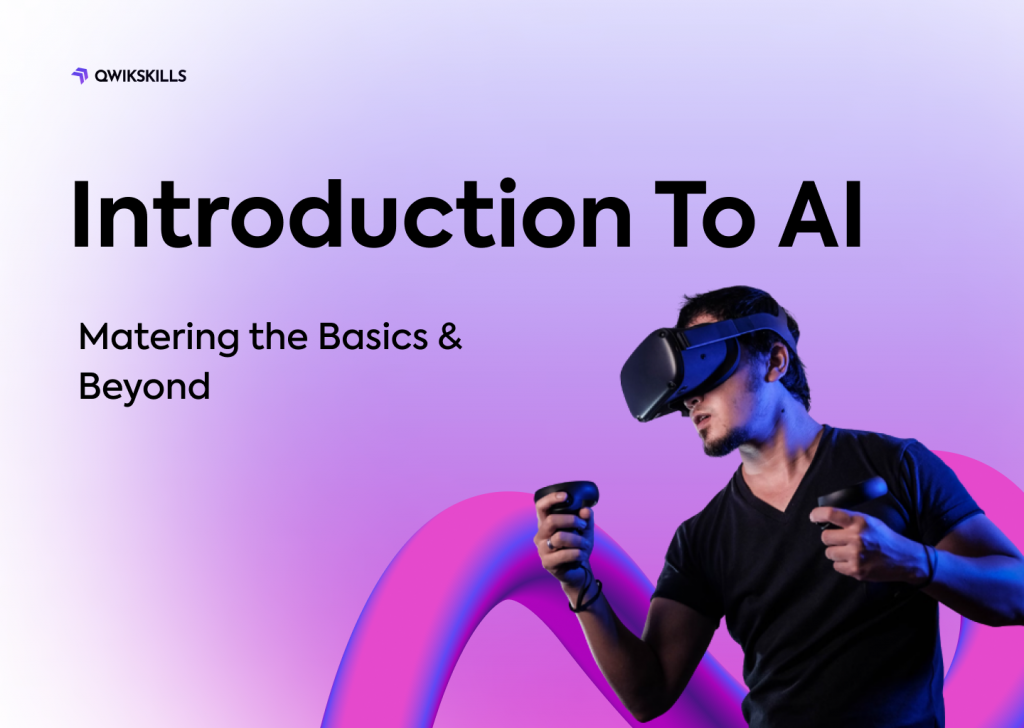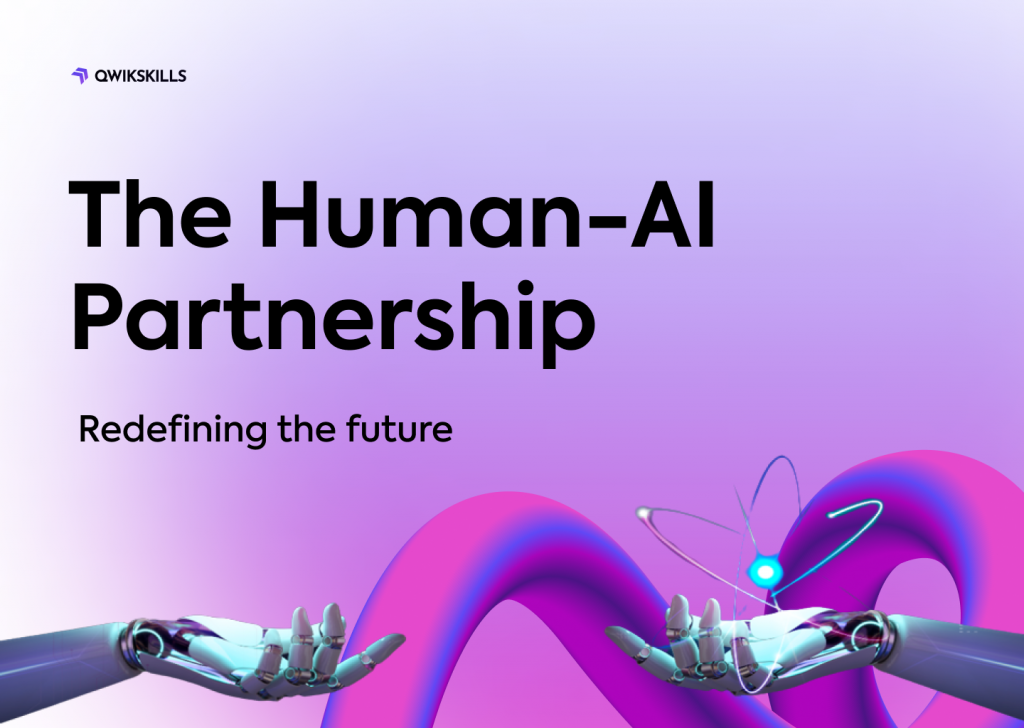In a world where technology continues to evolve at an astonishing pace, the convergence of Artificial Intelligence (AI) and marketing has emerged as a game-changer. This dynamic synergy between AI and marketing has redefined the landscape of customer engagement, enabling businesses to craft more personalized experiences, predict consumer behavior, and optimize their strategies for unparalleled success. learn AI-driven marketing. In this article, we’ll delve deep into the realm of AI-powered marketing automation, exploring its benefits, challenges, applications, and future implications.
Introduction to AI and Marketing Synergy
As the digital era unfolds, the role of AI in reshaping traditional marketing approaches has become increasingly evident. With a profound understanding of both AI and marketing strategies, we’ll navigate the intricate pathways where these two domains intersect and complement each other.
Defining AI and Its Role in Marketing
AI, in its essence, is a technology that empowers machines to mimic human cognitive functions. Within the realm of marketing, AI serves as a catalyst, augmenting various processes and enhancing decision-making by processing vast amounts of data in real time. This technological marvel is not simply a buzzword; it’s the driving force behind revolutionizing marketing strategies.
The Evolution of Marketing Strategies
Marketing, once a predominantly static endeavor, has evolved into a dynamic and adaptive realm. Traditional approaches relied on manual data analysis and generic outreach methods. However, AI has enabled marketers to harness the power of data analytics, uncovering valuable insights that inform targeted campaigns, customer preferences, and overall strategy optimization.
Importance of Synergy between AI and Marketing
The true magic happens when AI and marketing collaborate seamlessly. The synergy between the two realms empowers businesses to deliver hyper-personalized experiences that resonate with individual customers. This not only enhances customer satisfaction but also boosts brand loyalty and drives conversion rates to new heights.
Understanding AI-powered Marketing Automation
AI and Automation: Exploring the Connection
At the heart of AI’s impact on marketing lies automation. With AI-driven automation, repetitive tasks that once consumed valuable time and resources can now be executed effortlessly. This paves the way for marketers to focus on strategic thinking, creativity, and higher-level decision-making.
Key Benefits of AI-driven Marketing Automation
AI-powered marketing automation bestows a plethora of benefits. From streamlining workflows to improving campaign accuracy, automation enhances efficiency and reduces the margin for human error. Moreover, it ensures that marketing efforts are data-driven and aligned with customer behavior, ultimately driving enhanced engagement and conversions.
Navigating Challenges and Concerns
Yet, as with any transformative technology, AI-driven marketing automation poses its own set of challenges. Data privacy concerns, the need for extensive training of AI algorithms, and potential job displacement are some of the issues that require careful consideration. Striking a balance between AI and human intervention becomes imperative to address these concerns effectively.
AI Applications in Customer Insights
Enhancing Customer Profiling through AI
Customer profiling has reached new heights with AI’s prowess. By analyzing diverse data sources, AI constructs comprehensive customer profiles that go beyond demographics. This enables businesses to understand customer motivations, preferences, and pain points on a granular level.
Personalized Marketing Campaigns using AI Insights
Armed with AI-generated insights, marketers can craft personalized campaigns that resonate deeply with each individual. Whether it’s tailoring product recommendations or customizing email content, AI ensures that every touchpoint is relevant, increasing the likelihood of conversion.
Sentiment Analysis and Customer Feedback Integration
AI’s natural language processing capabilities enable sentiment analysis, empowering businesses to gauge customer sentiments and adjust strategies accordingly. By integrating customer feedback into marketing efforts, companies can adapt in real time and strengthen their customer relationships.
Automated Content Creation and Optimization
AI-generated Content: Quality and Authenticity
The notion of AI-generated content might raise concerns about authenticity. However, AI-generated content has come a long way in maintaining quality and context. It’s not about replacing human creativity but amplifying it by generating data-driven insights that inform content creation.
SEO-friendly Content Optimization through AI
AI’s contribution to content creation isn’t limited to text generation. It also plays a pivotal role in optimizing content for search engines. From identifying relevant keywords to structuring content for optimal readability, AI ensures that content gets noticed by the right audience.
Multilingual Content Expansion with AI
Expanding global reach becomes seamless with AI-driven multilingual content creation. AI’s ability to translate and adapt content while preserving its essence allows businesses to resonate with diverse audiences without losing the nuance of the message.
Precision Targeting and Audience Segmentation
Smart Audience Segmentation Techniques
Gone are the days of generic marketing messages. AI-driven audience segmentation takes a deep dive into customer behavior and preferences, categorizing them into micro-segments for more targeted campaigns.
AI-driven Targeting for Enhanced Conversions
With precision targeting, conversion rates soar. AI analyzes data patterns to identify the most receptive audience segments and deliver tailor-made messages that strike a chord, resulting in higher engagement and conversion rates.
Contextual Advertising and Dynamic Remarketing
AI-powered contextual advertising ensures that ads are displayed in the right context, increasing their relevance. Dynamic remarketing takes this a step further by re-engaging potential customers with personalized content based on their previous interactions.
Predictive Analytics and Forecasting
Harnessing Predictive Analytics for Marketing Insights
Predictive analytics, a core facet of AI, propels marketing into the realm of foresight. By analyzing historical data and patterns, AI models forecast future trends, enabling businesses to stay ahead of the curve and anticipate customer behavior.
Anticipating Customer Behavior with AI
Predictive analytics isn’t confined to market trends; it extends to individual customer behavior as well. AI-driven models can predict customer actions, allowing marketers to proactively tailor their strategies to cater to these behaviors.
Refining Strategies through Predictive Modeling
AI’s predictive capabilities serve as a compass for strategy refinement. Marketers can adjust their approaches based on the insights gained, ensuring that campaigns are agile and adaptive in response to evolving market dynamics.
Automating Customer Engagement
Chatbots and Virtual Assistants in Customer Interaction
The rise of chatbots and virtual assistants exemplifies AI’s impact on customer engagement. These AI-driven entities provide immediate support, answer queries, and offer solutions, enhancing the customer experience in real time.
AI-powered Customer Support and Issue Resolution
AI’s ability to understand and respond to customer queries goes beyond scripted interactions. Natural language processing equips AI with the capacity to comprehend nuances, leading to more effective issue resolution and customer satisfaction.
Maintaining Human Touch in Automated Engagement
While AI enhances efficiency, maintaining a human touch remains paramount. Businesses must strike a balance, using AI to handle routine tasks while ensuring that genuine human interactions are preserved for meaningful engagements.
Data-driven Decision Making with AI
AI-generated Reports and Actionable Insights
AI doesn’t just provide data; it transforms raw information into actionable insights. AI-generated reports distill complex data sets into comprehensible formats, enabling marketers to make informed decisions swiftly.
Real-time Data Analysis for Agile Marketing
AI’s real-time data processing capabilities empower marketers to respond swiftly to changing market dynamics. With up-to-the-minute insights, businesses can tweak strategies on the fly to seize emerging opportunities.
Enhancing ROI through Data-backed Decisions
Informed decisions fueled by AI-generated insights translate into improved return on investment (ROI). By allocating resources based on data-driven predictions, businesses optimize their strategies for maximum impact.
Ethical Considerations in AI-powered Marketing
Transparency and Privacy Concerns
As AI permeates marketing, maintaining transparency is paramount. Customers should be informed about AI’s role in shaping their experiences, and their privacy rights should be safeguarded throughout the data collection and utilization process.
Striking a Balance between Automation and Human Touch
Ethical AI usage necessitates a harmonious blend of automation and human interaction. While AI enhances efficiency, human empathy, creativity, and decision-making remain indispensable in maintaining genuine connections.
Compliance with Regulations and Guidelines
Businesses must navigate a complex landscape of regulations and guidelines governing AI use. Ensuring compliance not only protects customers but also safeguards the business from potential legal pitfalls.
Future Trends in AI and Marketing Integration
AI’s Role in Shaping the Future of Marketing
The synergy between AI and marketing is a journey of continuous evolution. AI’s role will expand as it becomes more adept at processing unstructured data, leading to even more profound insights that shape marketing strategies.
Continuous Learning and Adaptation in AI
AI’s ability to learn and adapt will drive its evolution. As algorithms become smarter through machine learning, marketing will become more agile, anticipating trends and adapting strategies in real time.
Embracing Technological Advancements for Competitive Edge
Staying ahead in the market requires embracing technological advancements. AI’s integration with other emerging technologies like augmented reality, virtual reality, and the Internet of Things will open new dimensions for immersive customer experiences.
FAQs
- How can AI revolutionize marketing strategies? AI revolutionizes marketing by automating tasks, offering insights for personalized campaigns, predicting consumer behavior, and enhancing decision-making.
- What are the potential drawbacks of relying heavily on AI in marketing campaigns? Drawbacks include privacy concerns, job displacement, and the challenge of maintaining human empathy and creativity in automated interactions.
- Can AI-powered automation truly understand customer sentiments? Yes, AI’s sentiment analysis capabilities enable it to understand customer sentiments by analyzing text and interactions.
- How does AI help in content optimization for better SEO rankings? AI aids content optimization by identifying relevant keywords, structuring content for readability, and ensuring search engine visibility.
- What role does AI play in hyper-personalized marketing approaches? AI enables hyper-personalization by analyzing data to craft individualized marketing messages and campaigns.
- Is it possible for AI to accurately predict consumer behavior? Yes, AI’s predictive analytics can analyze historical data to forecast consumer behavior, aiding in strategy formulation.
- What precautions should businesses take to ensure ethical AI usage in marketing? Businesses should prioritize transparency, privacy, compliance with regulations, and maintaining a balance between automation and human touch.
- Will AI eventually replace human creativity in marketing? No, AI amplifies human creativity by providing data-driven insights, allowing marketers to create more effective strategies.
- What emerging technologies might shape the future of AI in marketing? Emerging technologies like augmented reality, virtual reality, and the Internet of Things will complement AI, enhancing customer experiences.
- How can businesses find the right balance between AI automation and personal customer interactions? Businesses must use AI to automate routine tasks while preserving authentic human interactions for meaningful engagement.
Conclusion: Unleashing the Power of AI-driven Marketing
In the grand symphony of business and technology, AI’s harmonious blend with marketing has created an exhilarating melody of possibilities. The power of automation, insights, and predictive analytics holds the potential to catapult businesses into new realms of success. As we stand on the cusp of a future where AI is not just a tool but a trusted ally, businesses that embrace its capabilities are poised to rewrite the rules of engagement, securing their place at the forefront of innovation and customer-centricity.
Ready to harness the transformative power of AI in your marketing endeavors? Dive into the future with QwikSkills! Elevate your strategies, engage your audience, and lead the pack in the dynamic landscape of AI-driven marketing. Embrace innovation today!

